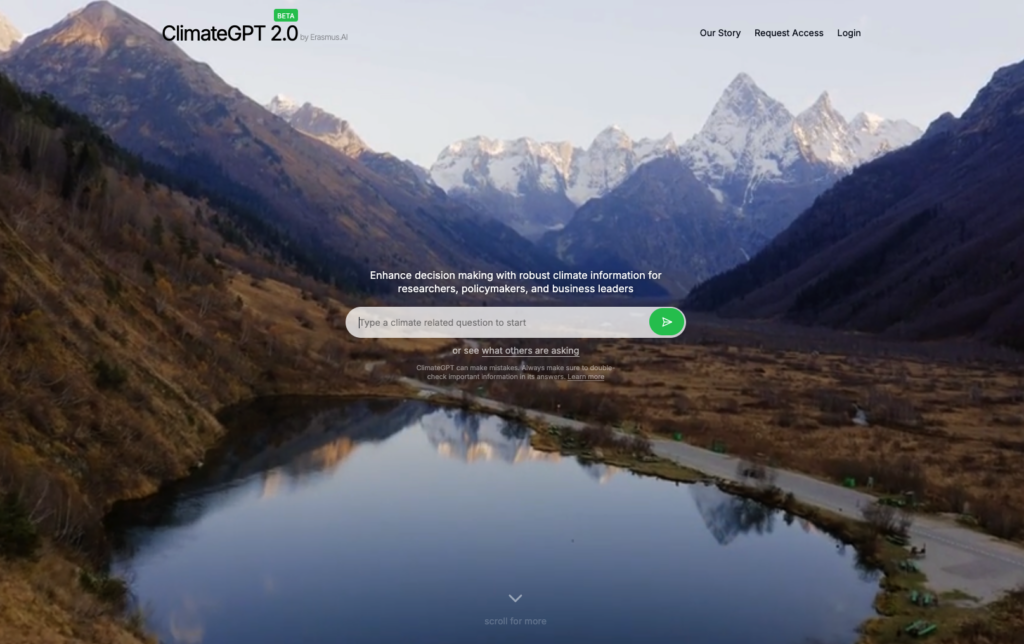We are thrilled to announce that the ClimateGPT model has reached a major milestone: more than 10,000 downloads on Hugging Face, one of the largest AI model repositories in the world. This achievement is a testament to the growing demand for climate-related information and the need for accessible, reliable, and accurate data.
ClimateGPT is a cutting-edge AI family of model developed by Erasmus.AI, now in its second major release. Our model family is trained on a vast dataset of highly curated, trusted climate-related texts, including scientific papers, news articles, and reports from International development organisations, treaty organisations, and the broad NGO community (World Bank Reports, OECD, IPPC, UN, EU, TCFD, US Gov, Nation State Governments, NASA, ESA, WRI, IREA, WEF, Nature Finance, etc.). This training enables ClimateGPT to generate high-quality responses to a wide range of climate-related questions, from the basics of climate science to the latest research on climate change mitigation and adaptation.

But what’s truly remarkable about ClimateGPT is its accessibility. ClimateGPT is open-source and free to use for researchers, with broad adoption of users from Nairobi to NASA. This means that anyone with an internet connection can access the model and tap into its vast knowledge base.
We believe that democratising access to climate information is essential for creating a more sustainable future. Climate change is a global problem that requires a global response. By making ClimateGPT available to everyone, we’re empowering individuals, organisations, and governments to make more informed decisions about climate change.
The 10,000 downloads milestone is a significant achievement for our team, and we’re grateful to the Hugging Face community for their support. We’re committed to continuing to improve ClimateGPT, with ClimateGPT 2 and beyond by adding new features and capabilities that will make it even more useful to our users.
So, what’s next for ClimateGPT? We’re currently working on several new initiatives, including:
- Expanding our training dataset to include more climate-related texts from around the world
- Developing new tools and interfaces that will make it easier for users to interact with ClimateGPT, as well as model 2
- Collaborating with other organizations and researchers to integrate ClimateGPT into their workflows and applications
We’re excited about the future of ClimateGPT 2+and the impact it can have on the global response to climate change. By democratizing access to climate information, we’re creating a more informed and engaged global community that’s better equipped to tackle the challenges of climate change.
So, if you haven’t already, interact with ClimateGPT 2 today and start exploring the best climate information available. Together, we can create a more sustainable future for all.


Leave a Reply